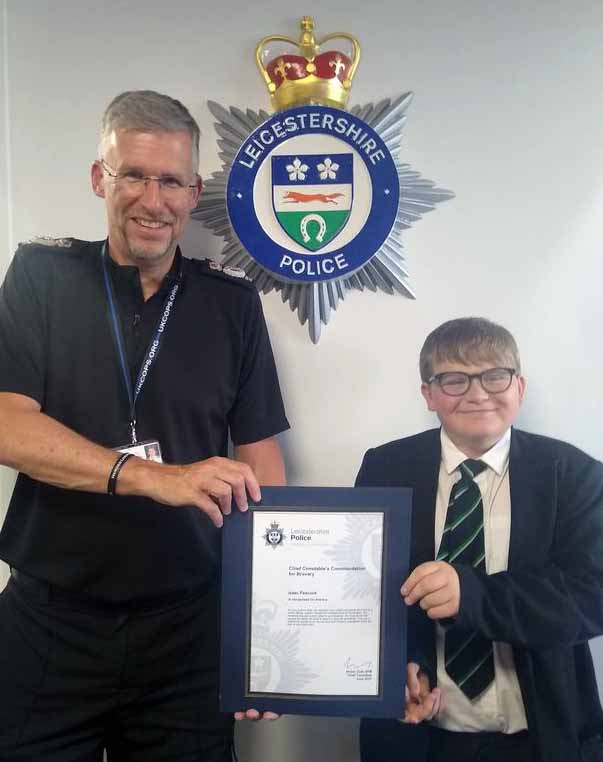Clair Peacock and her two sons, Isaac and Harry, were watching a favorite TV show a year ago in January when they decided to have a snack. Unbeknownst to them, the snack contained peanuts to which both Clair and her son Harry were allergic.
Clair picks up the story:
I said ‘well try the new snacks that I have bought’. I had bought some natural snacks to go in their lunchbox – they were cocoa-based and I bought them previously from one shop, and I got these from a different shop.
When Harry ate them, he said ‘Oh, they taste a bit funny’. Izaac said ‘I don’t like that’ – I tried it and I knew straight away it had peanuts in it. Whereas when I bought it from the other shop it had no peanuts in it.
In my naivety I had not checked the label fully.
We both reacted to eating the treat, I went upstairs to the bathroom to do what you should do in that [situation]: that is to clean your mouth, and to clean with toothpaste.
My gums were very swollen, I was feeling very sick – I was trying to vomit.
Isaac, seeing his mother was suffering anaphylaxis, calmly sprang into action calling emergency services, his grandparents, and his father, who is an officer with the Leicestershire Police force. He then collected samples of the cookies and made sure their dogs were secured in preparation for the arrival of the EMTs.
Paramedics on the scene determined that Harry’s reaction was minor and he would not require further medical attention. Clair was in the throes of full-blown anaphylaxis and was brought to the emergency department of Queen’s Medical Centre.
Both Isaac and Harry have a processing disorder that renders it especially difficult to receive and process information, making Isaac’s feat even more impressive.
Said Clair:
My breathing by the time I got there was not good. I was able to breathe on my own – and I was seen by them at [the emergency department].
The paramedics were fantastic with Izaac, they actually went and showed him how the ambulance worked just to calm him down.
They have got a little whiteboard in the ambulance, they said he could write on it.
He wrote: ‘Thank you for helping my mum’.
Clair was fine after treatment though she required a course of steroids to help reduce the swelling to her face.
Isaac, who is now 12, received a commendation for bravery from Chief Constable Simon Cole of the Leicestershire Police and has been awarded a Royal Humane Society Certificate of Commendation for his actions during the incident.

Andrew Chapman, Secretary of the Royal Humane Society, said:
A lot of adults would have panicked in a situation like this. For a 10-year-old to show such incredible calm and deal with the situation the way he did is incredible.
His family must be immensely proud of him. It was a life and death situation and he saved the day.
What a young hero – he richly deserves the award he is to receive.
Our congratulations to Isaac for his well-deserved commendations. Indeed, many adults would have panicked in his situation, but his calm demeanor in the face of his mother’s worsening condition saved the day… and her life.
As we do when reporting these incidents, we highlight a number of takeaways to help prevent such occurrences from happening to the allergic community at large:
- ALWAYS check the ingredients and warnings on the package label before consuming a packaged food product, even if you have consumed that product many times before as manufacturers often change ingredients and manufacturing facilities. In this case, we presume the package ingredients stated that peanuts were an ingredient of the snack.
- Make sure you always have two epinephrine auto-injectors on hand and train your family, friends, and co-workers how to administer the device correctly and how to recognize the signs of anaphylaxis. You should always carry two in case the first dose is not sufficient to halt the progression of anaphylaxis or the device malfunctions.
- Administer epinephrine as soon as you suspect anaphylaxis. The earlier epinephrine is administered, the better the outcome.
Note: As far as we know, no recognized medical authority advises patients to brush their teeth when suffering an allergic reaction. If you suspect anaphylaxis, administer epinephrine immediately. Otherwise, discuss this directive with your physician.





